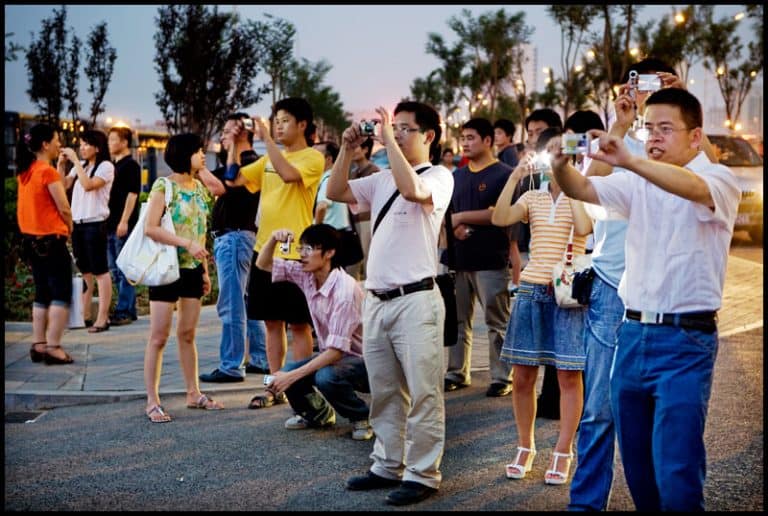The rise of digital nomad in China

Digital Nomad in China
The digital nomad movement is on the rise. More people are ditching their desks and location-based jobs to work remotely for companies around the world, and China’s workforce is a growing part of this trend. Some of these digital nomads may be coming from within China; others might have moved to China from other countries like the US or Canada. This post explores how digital nomadism could change the future of the Chinese workforce.
WHY CHINA
China is a country that has witnessed dramatic economic and social change over the last few decades. The number of Chinese people living in cities surpassed those living in rural areas for the first time in 2008, and since then China has continued to urbanize at an unprecedented rate. This trend will likely continue as more than half of China’s population is under 35 years old and there are still many out-of-work farmers looking for jobs elsewhere. With this shift, marketers need to start paying attention to what digital nomads have been doing abroad, because these young entrepreneurs may be the future of marketing in China!
The digital nomadic lifestyle is a new phenomenon in China, but it has gained traction over the past year as more people have been forced to work remotely. This shift became necessary after many businesses were closed for extended periods of time during the pandemic’s worst outbreak last summer and fall. According to research done by Baidu—China’s most popular search engine–there were only a few articles related to nomadism published on their sites before 2020; this number had grown exponentially when they conducted another study just six months later at nearly thousand of articles!
As the world’s manufacturing hub, China has a lot of opportunities and great networking. However, internet censorship in place means restricted access to some popular websites like Google or Facebook that could be useful for your business. China is not the most reliable location when it comes to the internet. But cities have no shortage of coworking spaces (shared offices that can be rented both long-term and short-term) where entrepreneurs, freelancers, creatives, and remote workers will find plenty of interest among one another.
Shanghai
Shanghai is often called “The New York of Asia” and the “Paris in The East.” And could be a perfect match for a foreigner or a local digital nomad. Shanghai has become China’s most international city, as well as its center of culture. It really would be a comfortable place to live because it shares a colonial history with other Western countries that have been there before like England and France. However, while convenience comes at a price. Shanghai recently became more expensive than Hong Kong-it makes up for this by being one of Eastern Asia’s major cities where you can find many amenities geared towards people who are living here temporarily.
Shenzhen

Shenzhen could be another option, China’s youngest and known as the ‘Hardware Silicon Valley’. The home of many startups, maker spaces, coworking offices, and meet-ups.
Shenzhen offers effective networking with international companies bringing their manufacturing projects to the area for low production costs. With easy access to Hong Kong, it is also convenient living in Shenzhen whether you’re a foreigner or a local resident.
There are plenty of reasons to see China’s less ‘international’ cities. For digital nomad starters, it offers a more authentic and laid-back pace of life. It also has lower costs than the metropolis track for things like rent and food.
Digital nomads are more than just people who work online. They are a lifestyle, an adventure-seeking tribe of travelers that is changing what it means to be mobile and how we explore the world. Read more
CONSEQUENCES FROM COVID19
The digital nomad lifestyle gained in popularity during the pandemic as people were working remotely and were so able to work from everywhere.
Thousands of Chinese people were stuck at home while they had planned to work or study on-site in their city or abroad. Once this population understood that remote work and close borders became the norm, it was the time to think to new options. One was to work from elsewhere with the possibility to move whenever you want but with the constraint of staying in China. Population movement increased since 2020 and the number of domestic tourist trips within China is expected to skyrocket 42% by 2021, according to a report from the China Tourism Academy.
China may have a lot of catching up to do with the United States, but those who are looking for an alternative lifestyle will be happy to know that there is plenty of potential regarding becoming a digital nomad. The rise in the number of nomadic workers has created a new lifestyle for those who are tired of working.
Although much smaller than its US counterpart, China has seen interest and growth among early retirees or just young people seeking more free time due their work-life balance. Living off the grid is not always a bad thing. It offers an escape from big companies and their demands that will never fully be met. Living without ties to corporations can give more freedom than ever before by allowing living their life with no strings attached other than theirs.
Hu has been working from several exotic locations over the past few months for the company, including a beach bar on Hainan’s tropical island, a cafe in Zhenyuan’s ancient city, and a mountaintop hostel within the southwestern Yunnan region.
“I had always dreamed of travelling while working. And the pandemic provided me with a wonderful opportunity.” “As long the wireless connection is stable I can work with my colleagues on three continents at any time.”
Hu is one of the growing number of Chinese millennials who are reinventing themselves as digital nomads, earning a living while traveling around China.
The digital nomad lifestyle in China was virtually unheard of before the pandemic.
Baidu, China’s most used search engine, only shows a few results for the term “digital nomads” that were posted prior to 2020. Most of these are translations from overseas blog posts.
This has changed dramatically over the last year. The practice of remote working, once considered unacceptable by Chinese companies, was accepted during extended lockdowns. At the peak of the crisis, there were 200 million working at home.
Many young people were unexpectedly trapped in China.
However, they were able to book domestic flights as well as hotel rooms at bargain prices. It was an opportunity to explore alternative lifestyles.
A pioneer in the emerging digital nomad movement in China, says that 2021 was a great year to promote it. “Many young Chinese who had studied or worked overseas had to return to China in order to survive the pandemic and create new plans for the disrupted years.”
A story of a Fujian native, is also a recent returningee. He left his job in Malaysia as a software engineer and returned to China in September 2019 to pursue a new career.
Instead of looking for a full-time job, the 29-year old decided to work as an indie developer. He also founded a coworking space in Dali for digital nomads, a charming southwestern city that is known as China’s “hippie capital”.
In its first three months, the startup Hub attracted more 200 members, many of whom were vloggers, programmers and social entrepreneurs in their 20s or 30s. Chinese plans to open a second outlet in Sanya, the southern coastal town.
Ng says, “I loved visiting coworking spaces and talking with digital nomads when I was in Malaysia. But when I returned to China I couldn’t find anything similar.” “Why not make one?”
Ng organizes “coworkations,” which are trips with five to six people who travel with him to China to work for a few weeks. After his fourth trip to the southwest Guizhou province, Ng will take his team to Gansu in June, an arid region of China’s northwest.
China’s market is still small compared to the United States. Nearly 11 million Americans are digital nomads according to MBO Partners, a consulting firm. There is still plenty of growth potential. Young Chinese are increasingly interested in unconventional lifestyles. They are joining early retirement movements, organic farmers or even anarchist communities.
However, it can be difficult to live in China as a digital nomad. The lifestyle is not for everyone. Millennials who have tried it say they’ve had to deal with everything, from losing their job to running out of money to losing their social security.
The biggest problem is financing a nomadic lifestyle. Digital nomads who have lived in the wild warn that those living on their own without a job must have enough money or be able to self-regulate and discipline themselves.
A advocate and alternative lifestyle advocate, said that passive income is essential to make it sustainable. This means regular income from an outside source, such as a contractor or employer. You could do this by creating an information product such as a Coursera video course, and then relaxing while the cash rolls in.
read also
After graduating from college, the 28-year old became a backpacker in Argentina. He earned money working online on international education projects.
Fu was able over time to create a steady source of passive income through the sale of online courses in English and how to work remotely. She returned to China after COVID-19 struck Argentina and met Ng in Dali. There, she helped Ng launch the digital nomad project.
influencer are digital nomads in China
China hears from other digital nomads that they make passive income through stock and bond dividends, rental payments, and sponsorship or advertising revenues via their YouTube channels.
A Chinese vlogger who has more than 50,000 subscribers on Chinese video platform Bilibili and whose channel is about French language learning, was among the first to join the Dali Hub.
This girl was a project manager who oversaw Chinese infrastructure projects in Africa. Chen returned to China last year and began uploading videos to teach Chinese students French. She now makes her main income from selling an online French course for 98 Yuan ($15).
A social entrepreneur in China
The story of social entrepreneur and social entrepreneur believes that the benefits of retiring are greater than the freedom of living on the road. Sun plans to have a child in the next year and hopes to secure a spot at one of Shenzhen’s top schools. To do this, she must first buy a house in Shenzhen so that she can be a permanent resident.
She sighs, “We Chinese weren’t made to be nomads.” “We are an agricultural society with a long history.”
Echo Tang, a gap-year student, who tried out digital nomadism, had to end her experiment. Although she was able to make a lot of money working remotely for Tencent, she was concerned about her social security and her medical insurance being canceled after she left the company.
Hu, a Google employee, plans to return to big-city life when Japan relaxes its travel restrictions. He says, “But it was wonderful memories.”
The Dali Hub founders Chen and Ng insist that they are in it for long-term success. Chen’s channel Bilibili is growing in China and Ng hopes to live off this income for many more years.
She says, “I follow the flow.” “I will stay where I love.”
Ng plans to nomad internationally once the pandemic has ended. Many territories offer preferential visas to digital nomads.
He says, “It’s already difficult for me to picture going back to an office in a big and bustling city with a set schedule.”







